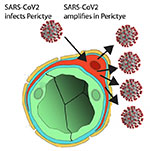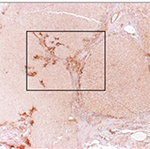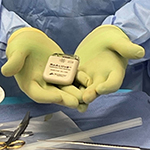3D “Assembloid” Shows How SARS-CoV-2 Infects Brain Cells
Researchers at UC San Diego School of Medicine and Rady Children’s Institute for Genomic Medicine have produced a stem cell model that demonstrates a potential route of entry of SARS-CoV-2, the virus that causes COVID-19, into the human brain.

















